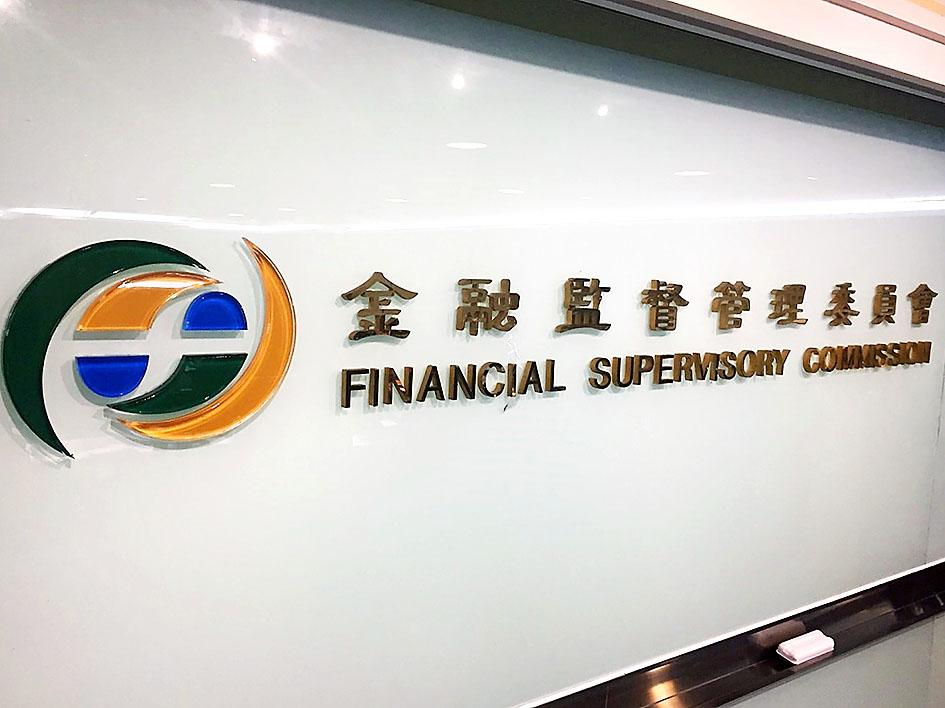The Financial Supervisory Commission (FSC) yesterday fined Citibank Taiwan Ltd (花旗台灣) NT$10 million (US$357,194) and DBS Bank Taiwan (星展台灣) NT$6 million for breaches of the nation’s anti-money laundering (AML) regulations.
The NT$10 million fine is the highest penalty that it has imposed on a domestic bank, the commission said.
Citibank Taiwan failed to set up a sound mechanism for evaluating clients’ risk of money laundering and for detecting suspicious transactions, Banking Bureau Deputy Director-General Huang Kuang-hsi (黃光熙) told a news conference in New Taipei City.

Photo: Kelson Wang, Taipei Times
The bank based its AML policies on those of its US-based parent company, Citigroup Inc, but the policies ignored transaction types specific to Taiwan that are suspected to be used for money laundering, Huang added.
As criminals in Taiwan mainly move money from Taiwan to China, Hong Kong, Macau and Southeast Asian countries, Citibank Taiwan should have highlighted these countries in its system, but it had not highlighted them because its parent company had not, Huang said.
Many of the bank’s corporate clients were one-person overseas companies that shared the same billing address and contact number, which was questionable, the commission said, adding that they might have been tax reduction arrangements for people related to each other.
Citibank Taiwan should have known the backgrounds of the one-person companies, but it did not — it had only labeled them as low or medium-risk clients, the commission said.
The bank’s mechanism for monitoring transactions was designed to exclude large deals, as it found it normal for big clients to have large transactions, but that goes against AML principles, which say that the larger the deal, the more scrutiny is needed, it said.
Once it detected suspicious deals, the bank did not investigate them well, as it ignored incidents when the scale of a client’s business did not match transaction amounts, failed to clarify the sources of funds and disregarded that sanctioned countries have higher risks, the commission said.
Citibank Taiwan also failed to set up a system to specifically monitor clients that were cryptocurrency exchanges, also a breach of AML regulations, it added.
DBS Bank Taiwan was penalized for similar breaches, the commission said.
DBS Bank Taiwan also had many clients that were one-person companies that shared billing addresses and contact numbers, and even though the bank had labeled them as high-risk clients, it did not take further measures to prevent potential money laundering, it said.

POWERING UP: PSUs for AI servers made up about 50% of Delta’s total server PSU revenue during the first three quarters of last year, the company said Power supply and electronic components maker Delta Electronics Inc (台達電) reported record-high revenue of NT$161.61 billion (US$5.11 billion) for last quarter and said it remains positive about this quarter. Last quarter’s figure was up 7.6 percent from the previous quarter and 41.51 percent higher than a year earlier, and largely in line with Yuanta Securities Investment Consulting Co’s (元大投顧) forecast of NT$160 billion. Delta’s annual revenue last year rose 31.76 percent year-on-year to NT$554.89 billion, also a record high for the company. Its strong performance reflected continued demand for high-performance power solutions and advanced liquid-cooling products used in artificial intelligence (AI) data centers,

SIZE MATTERS: TSMC started phasing out 8-inch wafer production last year, while Samsung is more aggressively retiring 8-inch capacity, TrendForce said Chipmakers are expected to raise prices of 8-inch wafers by up to 20 percent this year on concern over supply constraints as major contract chipmakers Taiwan Semiconductor Manufacturing Co (TSMC, 台積電) and Samsung Electronics Co gradually retire less advanced wafer capacity, TrendForce Corp (集邦科技) said yesterday. It is the first significant across-the-board price hike since a global semiconductor correction in 2023, the Taipei-based market researcher said in a report. Global 8-inch wafer capacity slid 0.3 percent year-on-year last year, although 8-inch wafer prices still hovered at relatively stable levels throughout the year, TrendForce said. The downward trend is expected to continue this year,

‘BASICALLY A BAN’: Sources said the wording governing H200 imports from officials was severe, but added that the regulations might change if the situation evolves Chinese customs authorities told customs agents this week that Nvidia Corp’s H200 artificial intelligence (AI) chips are not permitted to enter China, three people briefed on the matter said. Chinese government officials also summoned domestic technology companies to meetings on Tuesday, at which they were explicitly instructed not to purchase the chips unless necessary, two of the people and a third source said. “The wording from the officials is so severe that it is basically a ban for now, though this might change in the future should things evolve,” one of the people said. The H200, Nvidia’s second-most powerful AI chip, is one

STRONG SALES: The company said that revenue growth momentum would remain strong this year and next year as major customers continue to buy new equipment Semiconductor equipment supplier Gallant Precision Machining Co (均豪) yesterday reported its best annual profit in 19 years last year, as booming artificial intelligence (AI) chip demand boosted sales of its advanced packaging equipment. Net profit surged about 40 percent to NT$415 million (US$13.12 million), compared with NT$297 million in 2024, the company said in a regulatory filing. Earnings per share rose to NT$2.58 from NT$1.82. Revenue grew 5.18 percent annually to NT$4.67 billion from NT$4.44 billion in 2024. Gallant Precision said revenue growth momentum would remain strong this year and next year as major customers continue to spend heavily on new equipment to boost